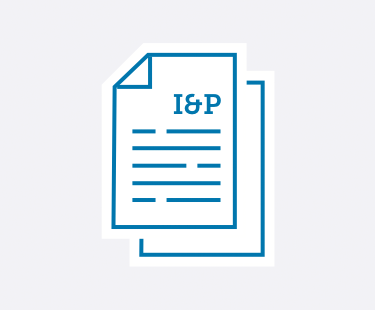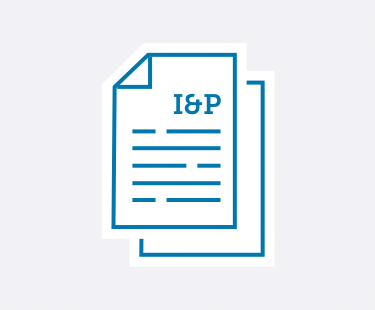

Learn practical strategies to handle emerging trends and leadership challenges in private schools.
No matter if you’re a School Head, Admission Director, Development Director, Board member, or any other private school administrator—Ideas & Perspectives, ISM’s premier private school publication, has strategic solutions for the pervasive problems you face.
- Tuition not keeping pace with your expenses? In I&P, explore how to use strategic financial planning to create your budget and appropriately adjust your tuition.
- Enrollment dropping off? Discover how to implement the right admission and enrollment management strategies that engage your community—and fill your classrooms.
- Trouble retaining teachers? Learn how you can best support your teachers using ISM’s Comprehensive Faculty Development framework. Your faculty members will become more enthusiastic about their roles—which ultimately improves student outcomes.
- Fundraising campaigns not as successful as you’d hoped? Implement ISM’s practical advice and guidance to build a thriving annual fund, construct an effective capital campaign, and secure major donors—no matter your community size or location.
- Not sure how to provide professional development—for you and your staff? Learn ways to develop and fund a successful professional development strategy. You can improve teacher-centered satisfaction and growth, which in turn strengthens student-centered learning.
- Problematic schedule? You can master the challenges of scheduling with the help of ISM’s practical advice, based on our experience with hundreds of schools and our time-tested theories.
- And so much more.
I&P has shared targeted research, up-to-date insight, and sound theory with school leaders since 1975. More than 8,500 private school decision-makers find the answers to their schools’ administrative and governance matters in our advisory letter. We give you the strategic answers you need.
As an ISM Silver or Gold member, you not only receive issues online and in print 10 times a year, but you have access to more than 600 articles in our web archive. Need help? It’s at your fingertips! Learn more and sign up for ISM's membership here.
Search
See the articles from our latest issue of Ideas & Perspectives.
The Head Support and Evaluation Committee: Subtleties
Volume 35 No. 13 // October 13, 2010
ISM has written extensively on the subject of the Head Support and Evaluation Committee (HSEC), including an article that provided a lengthy checklist. But the nuances of this committee’s functions can escape even the longest lists, and ISM here provides further commentary and examples on this critical topic. The HSEC serves as the linking unit between governance and operations. Its composition, thus, should include a small number—often two or three—of management-savvy individuals,1 each of whom (a) has the institution’s long-term, mission-specific success as her/his only agenda, coming into the role; (b) has no predetermined (other) special agendas, no axes to grind, no hearsay-based “fixes” to impose on the School Head; and (c) has a dispassionate relationship with the Head (not too close, and certainly not adversarial).
1. Already a member? Click here to login.
2. Not a member? Click here to become a member.
3. Not sure? We'll help you figure it out.
Paid Leave Banks: Compassionate or Risky?
Volume 35 No. 13 // October 13, 2010
Paid time off (e.g., sick, vacation, personal time) is an important element of a school’s overall compensation and benefits program.1 As a robust employee benefits and compensation program is one of ISM’s Stability Markers®, ISM encourages schools to be as generous in this area as financially possible. However, some schools extend this generosity in the form of paid leave “banks” in a way that creates risk for the school. This article examines those risks and proposes alternate paths to reach the same desired end—that is, attending to employee needs in a way that is compassionate but also significantly less risky.
1. Already a member? Click here to login.
2. Not a member? Click here to become a member.
3. Not sure? We'll help you figure it out.
Does Your Crisis Plan Really Protect Your Students (and School)?
Volume 35 No. 12 // September 23, 2010
Recently, ISM had the privilege of sharing some of its risk management ideas with over 100 school administrators. In our discussions, it quickly became clear that many well-intentioned schools have neither a comprehensive crisis plan nor a business continuation plan. The former is required by law in some states (and represents good stewardship and the “right thing to do”); the latter, simply good business practice. This I&P article outlines an appropriate crisis plan for private-independent schools. A future article will target the business continuation plan.
1. Already a member? Click here to login.
2. Not a member? Click here to become a member.
3. Not sure? We'll help you figure it out.
Essential Questions to Ask About Athletics and Character Development
Volume 35 No. 12 // September 23, 2010
ISM has published before on athletics and character development, including an athletics checklist for schools to employ. However, there seems to be a changed environment for athletics, certainly in the United States. Some schools seem to be getting to the point in secondary athletics (with its trickle-down impact in middle school) where they must make a decision regarding this question: To what extent are we going to allow our school to be driven off course (off mission) to meet the perceived competitive needs of our own and the next (college) level? Just as some schools are (appropriately) moving away from a mass curriculum/testing version of education encapsulated in Advanced Placement,1 so ISM believes that schools need to think carefully about their obeisance to college athletic pressures and focus on their own school cultures.
1. Already a member? Click here to login.
2. Not a member? Click here to become a member.
3. Not sure? We'll help you figure it out.
Balancing Delegation and Operational Accountability
Volume 35 No. 11 // September 3, 2010
One of your most vital tasks as School Head is to supervise your school’s operations. All of your school’s constituencies expect a consistent level of excellence in all the programs and functions. However, while you are responsible for these operational tasks, you are not responsible for actually performing them. Joining you is your Management Team—the deputies to whom you have delegated supervision of various portions of the day-to-day programs and functions. However, always keep in mind that you must hold your deputies accountable for performing their tasks, and that ultimately it is your duty to evaluate them accordingly.
1. Already a member? Click here to login.
2. Not a member? Click here to become a member.
3. Not sure? We'll help you figure it out.
Appropriate Tuition Adjustment: Recasting Financial Figures, 2010-11
Volume 35 No. 11 // September 3, 2010
Each fall, ISM publishes a set of conversion factors to facilitate the recasting of previous tuitions into current dollars. (See the table on the next page.) We continue to use the Urban Consumer Price Index (CPI-U).1 However, we also realize that the CPI-U does not completely reflect expenditures in private-independent schools; it can only serve as a base figure. There are compelling arguments for adjusting your tuition at a rate 2% above the overall inflation rate.
1. Already a member? Click here to login.
2. Not a member? Click here to become a member.
3. Not sure? We'll help you figure it out.
The 21st Century School: Faculty
Volume 35 No. 11 // September 3, 2010
The 20th Century School has as its educational center the autonomous teacher who exists in an egalitarian culture and is rarely, often never, effectively evaluated for impact on student performance, enthusiasm, and satisfaction. At all levels of the school, teachers are organized into silos of teaching (by grade or by content area) with little effective time within the silo to truly collaborate and professionally assess and grow, and equally little effective time to communicate outside the silo in any meaningful way. Teachers spend most of their time teaching on their own and preparing on their own to teach. Administrative meeting time, regularly scheduled, is universally disliked as irrelevant even though led by School Heads who themselves largely come from the teaching ranks.
1. Already a member? Click here to login.
2. Not a member? Click here to become a member.
3. Not sure? We'll help you figure it out.
How Do You Set the Annual Fund Goal?
Volume 35 No. 10 // August 2, 2010
In its work with schools, ISM often hears Development Directors say that the annual fund goal is determined by the Board and School Head, based on the “gap” between expenses and expected revenues (often referred to as the “plug number”) with little consideration of data gathered by the Development Office. Further, the performance of Development Offices is frequently evaluated based on the school’s ability to meet these goals. In ISM’s experience, budgeting for gift income and evaluating the development program in this way provides an inaccurate picture of the school’s financial resources and the true fund-raising potential of the school’s constituents.
1. Already a member? Click here to login.
2. Not a member? Click here to become a member.
3. Not sure? We'll help you figure it out.
Internal Marketing Strategies for Your Summer Program
Volume 35 No. 10 // August 2, 2010
As the Summer Program Director, you want to attract as many participants as you can. Because the program (with the exception of those that offer credit classes) does not have admission requirements, is oriented toward enrichment rather than academics, and is open to almost any student interested in a rewarding summer adventure, you can accommodate as many students as space allows.
1. Already a member? Click here to login.
2. Not a member? Click here to become a member.
3. Not sure? We'll help you figure it out.
Integrating Faculty Into the Advancement Process
Volume 35 No. 10 // August 2, 2010
ISM has defined advancement as “the process by which a school supports admission, development, and marketing/communication programs.” To stress its direct relationship to faculty, we will now add another aspect to this definition—“to provide the resources for strong and sustained student performance, enthusiasm, and satisfaction.”
1. Already a member? Click here to login.
2. Not a member? Click here to become a member.
3. Not sure? We'll help you figure it out.


